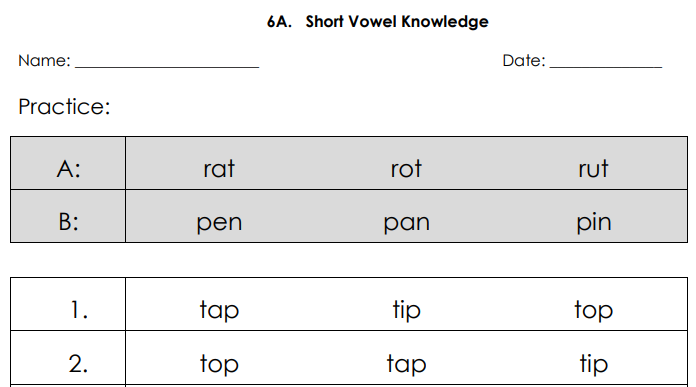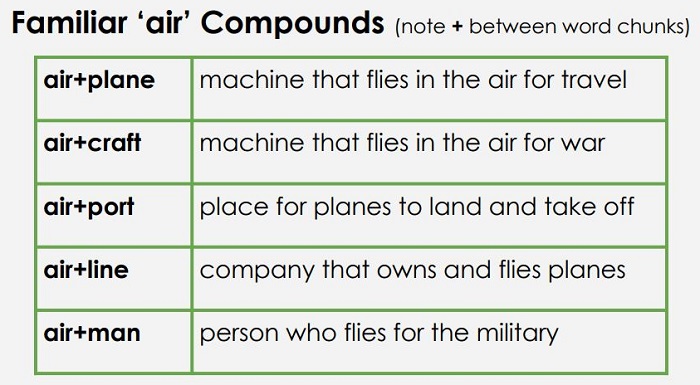- MN ABE Connect
- Archive
- The “Just in Time” Evidence-Based Reading Instruction (EBRI) Newsletter Series: Part 1
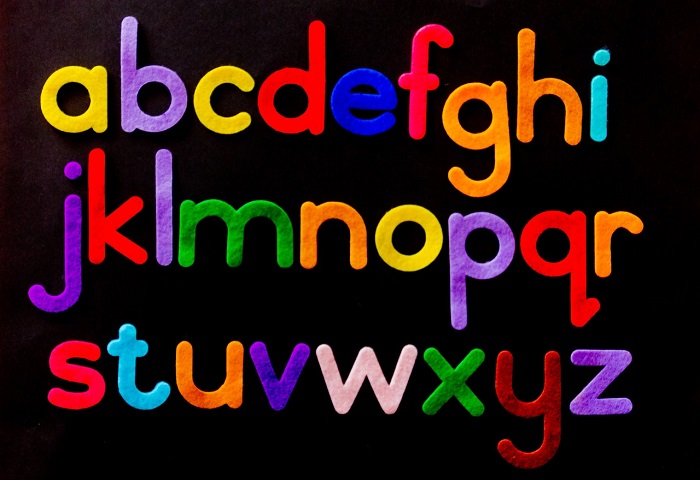 November 29, 2021
November 29, 2021
The “Just in Time” Evidence-Based Reading Instruction (EBRI) Newsletter Series: Part 1
Kristine Kelly, Literacy CoordinatorWelcome to a multi-part newsletter series highlighting PD and resources for each of the components of Evidence-Based Reading Instruction (EBRI): alphabetics, fluency, vocabulary and comprehension! To kick the series off, let’s take a look at some FREE alphabetics assessment, instructional and video resources to support your teaching of letters, sounds, morphemes, syllable types, word families, pronunciation and more! Many of the resources below also include materials for assessing your learners.
Remember, useful reading resources are always available in the ATLAS Reading Resource Library.
Free Alphabetics Resources from ATLAS
Beginning Alphabetics Tests and Tools (the BATT)
Use the BATT to help develop your learners’ knowledge of Roman alphabet letters, English letter-sound patterns, sight or high frequency words, and transfer of those letter-sound-word skills to text fluency and comprehension.
This useful resource includes assessment and instructional materials and suggestions for additional activities and time-saving resources.
Teaching Analogy Phonics (TAP)
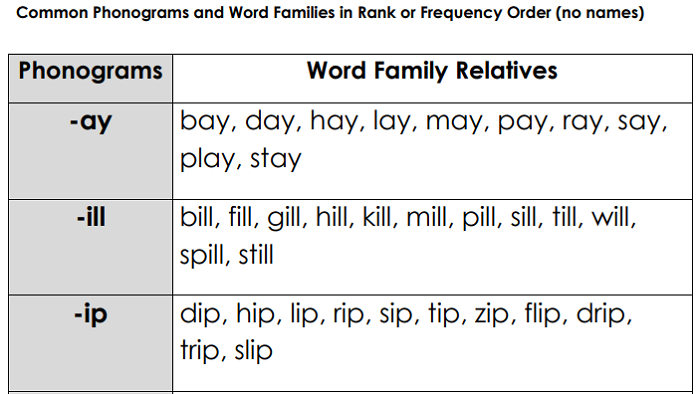 This alphabetics resource provides reading teachers and tutors with convincing background information and testimonials, a lesson plan model and template, other reinforcement ideas, and many (over 100!) common or sequential phonogram and word family lists for immediate analogy phonics instruction. It has great potential for ABE and ESL readers – if basic oral language and Roman alphabet skills are present.
This alphabetics resource provides reading teachers and tutors with convincing background information and testimonials, a lesson plan model and template, other reinforcement ideas, and many (over 100!) common or sequential phonogram and word family lists for immediate analogy phonics instruction. It has great potential for ABE and ESL readers – if basic oral language and Roman alphabet skills are present.
As a support, you can access a short PowerPoint slide that provides teacher background and guidance for using Teaching Analogy Phonics, including explanation of key terms, a brief review of history and research, and an explicit daily or weekly lesson plan for teaching analogy phonics with onsets and rimes (or phonograms).
Morpheme Matrices
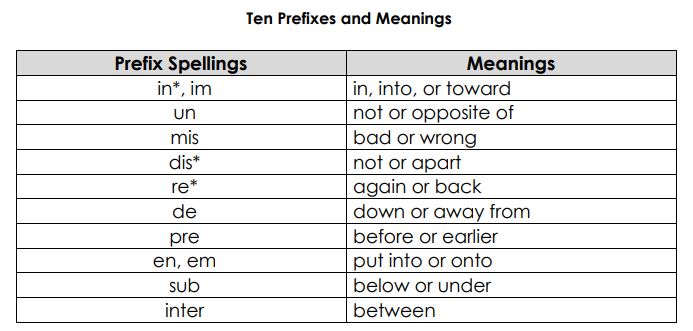 This resource was developed for ABE/ESL teachers working with students who are ready to move beyond phonics and simple words. It focuses on morphological awareness: how morphemes such as prefixes, Latin roots, Greek forms, and suffixes combine or assemble to form multi-syllable words and sometimes change meaning, part of speech, or usage. It can be taught sequentially, selectively and partially, or as standalone lessons, so the content can be used flexibly in different contexts and with inconsistent learner attendance.
This resource was developed for ABE/ESL teachers working with students who are ready to move beyond phonics and simple words. It focuses on morphological awareness: how morphemes such as prefixes, Latin roots, Greek forms, and suffixes combine or assemble to form multi-syllable words and sometimes change meaning, part of speech, or usage. It can be taught sequentially, selectively and partially, or as standalone lessons, so the content can be used flexibly in different contexts and with inconsistent learner attendance.
As a support, you can access a PowerPoint that provides background and guidance for using Morpheme Matrices, including an explanation of ten key decoding terms, examples of a Latin root and Greek form matrix, and explicit instruction for using morpheme matrices to assemble academic or scholarly words and families.
e-Advanced Alphabetics
This electronic, screen-shareable resource includes Google slide sets (in PDF format) for remotely teaching compound words, common suffixes, common prefixes, and related word families. Although designed during COVID closures as a resource that could be used virtually, the slide sets could be projected during an in-person class. The resources follow the explicit instruction model and are flexible in that teachers can start with any slide set, teach any words and assign any activities provided.
Supporting materials for e-Advanced Alphabetics are also available, including:
– a helpful list of ideas for using the slide sets
– a webinar recording from the 2021 Language & Literacy Institute
– a webinar recording (with teacher panelists!) from the state conference in November 2020
Intermediate Word Study
This resource includes an assessment to determine approximate learner grade level performance in word reading or decoding and mini-lessons for teaching multi-syllable decoding with compounds, syllable types and rules, common suffixes, prefixes, and roots.
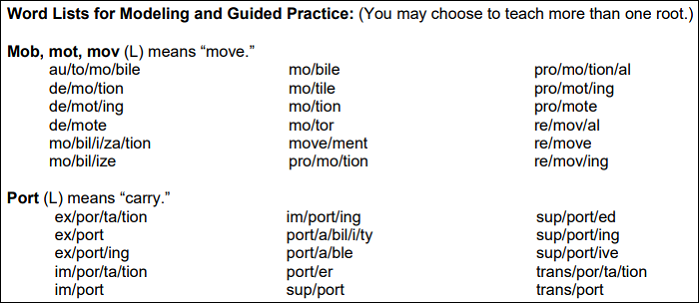
As a support, you can access a PowerPoint that provides background and guidance for using Intermediate Word Study, a preview of the research, intended ABE/ESL student populations, and suggested use of the testing, teaching, and resource pages.
Free Alphabetics Videos on the MN ABE Professional Development YouTube Channel
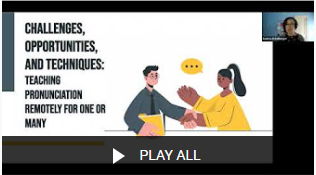 MN ABE’s homegrown channel on YouTube is full of great videos featuring MN teachers, learners and PD providers. For short videos of pronunciation activities and some excellent longer webinars about topics in teaching pronunciation, be sure to check out the Pronunciation Instruction playlist. There is also a wonderful list of short videos that demonstrate multisensory alphabetics teaching techniques with learners.
MN ABE’s homegrown channel on YouTube is full of great videos featuring MN teachers, learners and PD providers. For short videos of pronunciation activities and some excellent longer webinars about topics in teaching pronunciation, be sure to check out the Pronunciation Instruction playlist. There is also a wonderful list of short videos that demonstrate multisensory alphabetics teaching techniques with learners.
EBRI Webinar Series
Finally, mark your calendars for the upcoming EBRI Webinar Series with Marn Frank this winter and spring! The series will take place on Fridays from 1:00-2:30pm CST on February 18, March 4, March 25, April 15, April 29, and May 20, 2022. Get more information on the ATLAS Events calendar; registration for each webinar will open soon. You can attend some or all of the webinars!
Stay tuned for Part 2!
Next time, we’ll take a look at some noteworthy fluency resources and videos. For any questions regarding this newsletter series or EBRI in general, email [email protected].
Newsletter Signup
Get MN ABE Connect—the official source for ABE events, activities, and resources!
Sign UpArticle Categories
- ABE Foundations/Staff Onboarding
- ACES/Transitions
- Adult Career Pathways
- Assessment
- CCR Standards
- Citizenship
- COVID-19
- Cultural Competency
- Digital Literacy/Northstar
- Disabilities
- Distance Learning/Education
- ELA
- Equity/Inclusion
- ESL
- HSE/Adult Diploma
- Listening
- Math/Numeracy
- Mental Health
- Minnesota ABE
- One-Room Schoolhouse/Multilevel
- Professional Development
- Program Management
- Reading
- Remote Instruction
- Science
- Social Studies
- Speaking/Conversation
- Support Services
- Teaching Strategies
- Technology
- Uncategorized
- Volunteers/Tutors
- Writing
